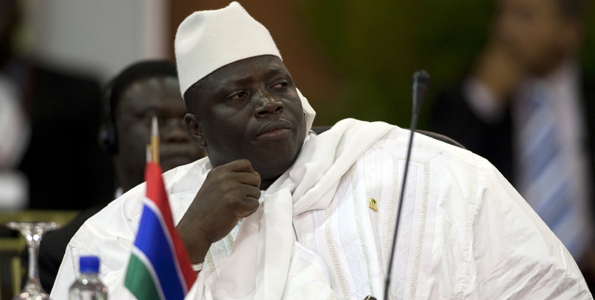The right-hand man of Gambia’s former president Yahya Jammeh on Monday admitted being “partially responsible” for the arrest, torture and execution of suspected political opponents during the leader’s 22-year reign.
“I am perhaps responsible… for putting Jammeh there,” former army captain Edward Singhateh told the country’s Truth, Reconciliation and Reparations Commission (TRRC).
“So, anything that has happened, I feel partially responsible, and for that I’m deeply remorseful.”
British-born Singhateh held a number of top government positions, including that of defence minister, under Jammeh who fled the country in January 2017 after losing presidential elections and initially refusing to step down.
Exiled leader
Jammeh had come to power in a bloodless coup in July 1994 and was repeatedly re-elected in disputed circumstances until being defeated in December 2016 by the relatively unknown Adama Barrow.
After other West African states intervened, he fled into exile in the central African state of Equatorial Guinea.
Human rights activists accuse Jammeh’s regime of torturing opponents, summary executions, forced disappearances and rape.
Singhateh has admitted personally arresting two key figures involved in the 1994 coup — Sana Sabally and Sadibou Hydara — whom Jammeh suspected of plotting against him.
Terrible injustice
Sabally was tortured and spent nine years in prison while Hydara died in detention.
Singhateh admitted that the investigation that led to Sabally’s conviction — and which alleged he had attempted to shoot Jammeh — was built on a web of lies.
Singhateh said Sabally had been subjected to “a terrible injustice”.
In two earlier hearings in front of the TRRC, Singhateh admitted his responsibility in the killings in November 1994 of 11 soldiers accused by the regime of plotting a counter-putsch.
“I am extremely sorry. I am apologising to all Gambians for what we have done in the past,” Singhateh said.
“What had happened should not have happened in the first place. It was wrong to arrest people and subject them to inhumane treatment.



